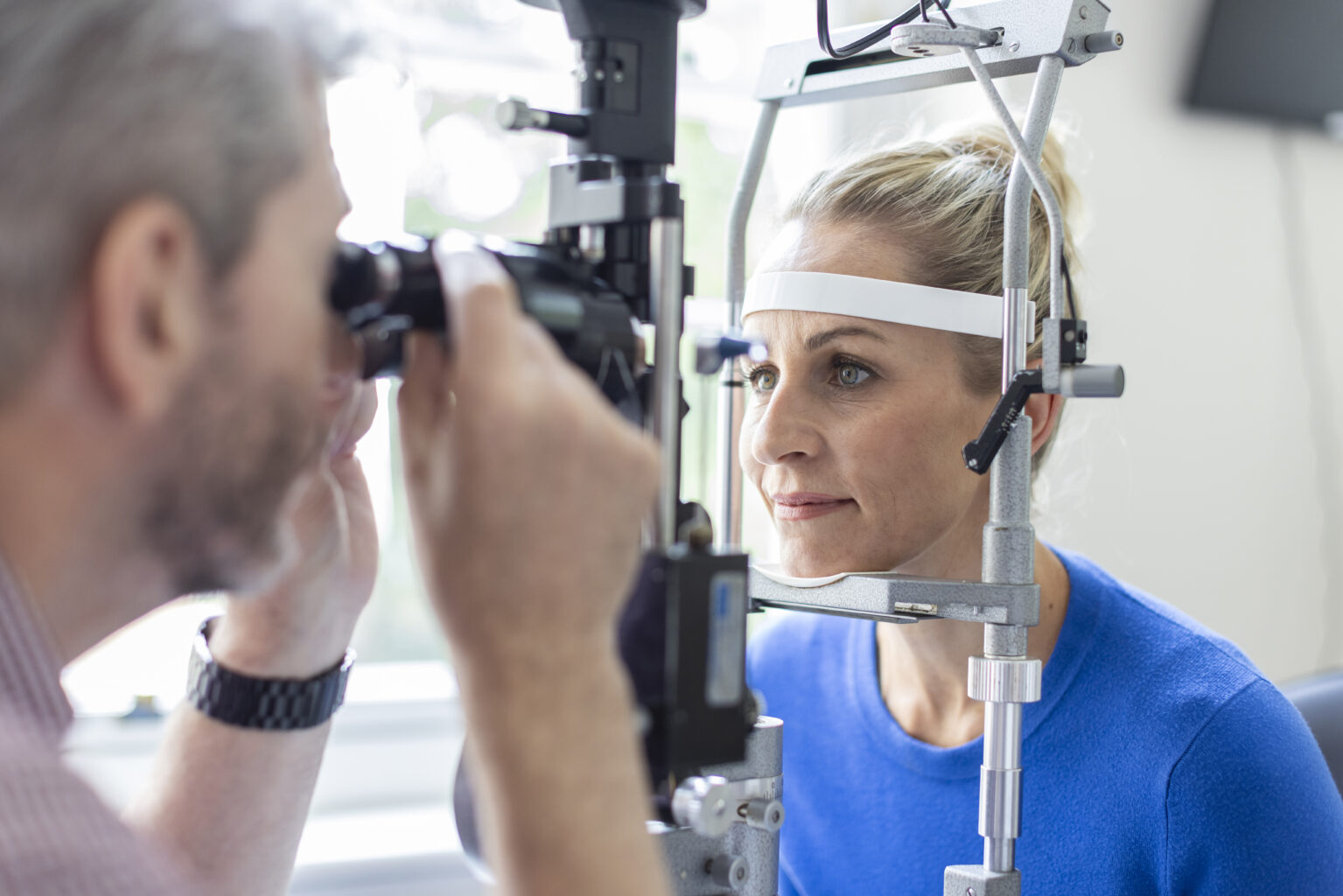Contact number: 020 7806 4060
Private Eye Lens Implant
Eye lens implant surgery is a safe and well-established treatment that can significantly enhance vision and quality of life. This surgery can correct various eye conditions, and many patients enjoy freedom from corrective eyewear after the procedure. Here are some of the main benefits of the procedure:
- Improved Vision: Most patients experience clearer, sharper vision after the procedure.
- Permanent Correction: The artificial lens provides long-term vision correction, often eliminating the need for glasses or contact lenses.
- Fast Recovery: Patients typically notice improved vision within a few days of the procedure, with minimal downtime.
When is Eye Lens Implant Surgery Needed?
Eye lens implant surgery is commonly recommended for patients with cataracts, where the natural lens becomes cloudy and impairs vision. It is also suitable for individuals with severe refractive errors who are not candidates for laser eye surgery. The procedure may be offered to those seeking clear vision without reliance on glasses or contact lenses, making it a popular option for vision correction in older adults or individuals with certain eye conditions.
If left untreated, cataracts can worsen over time, leading to vision loss and potentially blindness.
Consultants who perform Eye Lens Implant Surgery in London
How Much Does Private Eye Lens Implant Surgery Cost?
from £4,125*
The cost of private Eye Lens Implant starts from £4,125* at St John & St Elizabeth Hospital.
*The price shown is an estimated guide to the hospital charges associated with your treatment from admission to discharge. Your final cost may vary depending on your individual clinical needs, the procedure performed, any additional treatments required, the type of implant/prosthesis used (where applicable), and the length of stay. This guide price excludes consultation fees, diagnostic tests, and professional fees charged separately by your surgeon, anaesthetist, and any other specialists involved in your care.
Please note, this price does not include the cost of the eye lens itself which can range between £100 – £2,000 depending on the type used.
How to pay for your treatment
If you’re… paying for yourself
Did you know you don’t need private medical insurance to come to St John & St Elizabeth Hospital? As a self-pay patient, you can access safe, outstanding quality health care at times to suit you.
For scans and tests, as well as to see most consultants, you’ll still need to be referred by a medical professional like your GP, but as a self-pay patient, the process is more straightforward. You won’t need authorisation from an insurance provider, and you’ll have greater choice of consultant and appointment times.
If you’re… insured
St John & St Elizabeth Hospital is approved by all major medical insurance companies. If you have a personal private health insurance policy, or your company provide it for you, you can use it to pay for your care from your initial consultation through to treatment, surgery and aftercare such as physiotherapy. Not all private health insurance plans cover the same things. It’s very important to check exactly what you are covered for with your insurance provider.
FAQs About Eye Lens Implant Surgery
Your ophthalmologist will assess your vision, review your eye health, and discuss your symptoms. They’ll talk you through lens options — such as monofocal or multifocal lenses — and help you choose the best one based on your needs and lifestyle.
Yes. You may be asked to stop certain medications, particularly blood thinners. You might also need to use antibiotic eye drops before surgery, and if you’re having general anaesthesia, you’ll need to fast from the night before.
Most lens implant surgeries are done under local anaesthetic — your eye is numbed, but you stay awake. Some patients are also given sedation to help them relax. General anaesthesia is only used in specific cases.
The surgeon makes a tiny incision to remove the cloudy natural lens (if treating cataracts) and replaces it with an artificial intraocular lens (IOL). The procedure takes around 20–30 minutes, and stitches are rarely needed.
You may feel mild discomfort or blurriness for a few days. Eye drops and protective eyewear will be provided, and you’ll need to avoid rubbing your eye or doing anything strenuous. Vision typically improves within a few days, with full recovery in 4–6 weeks.

